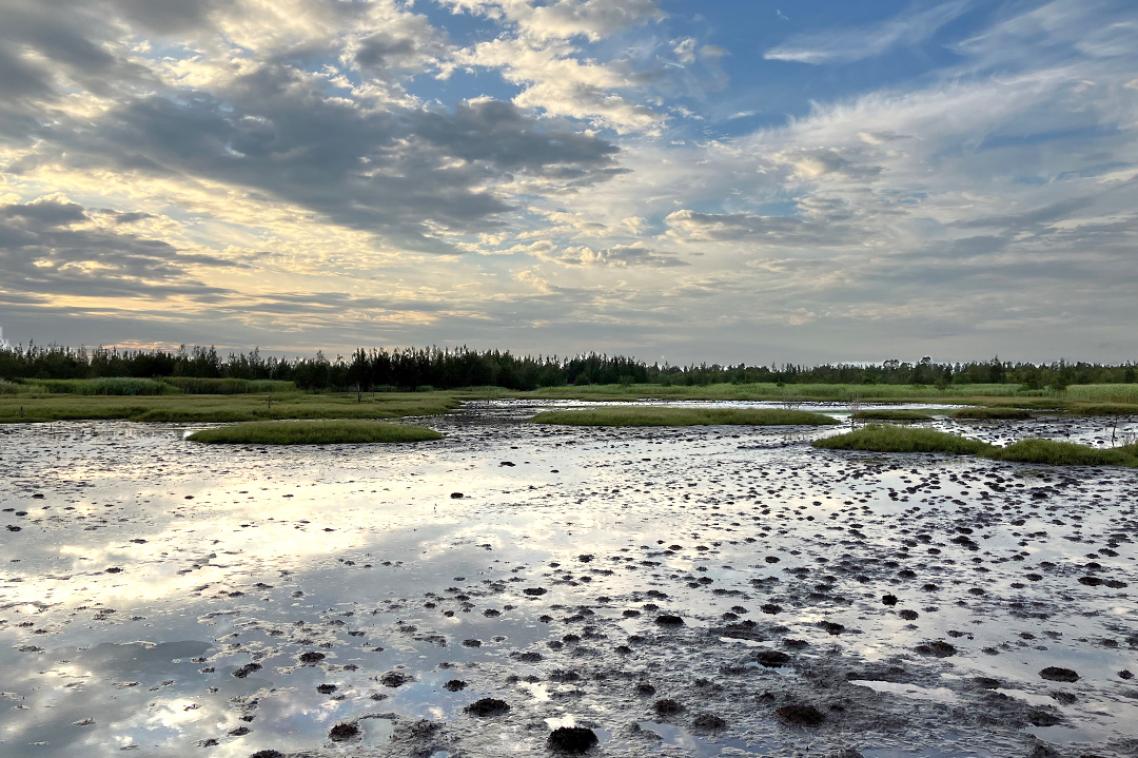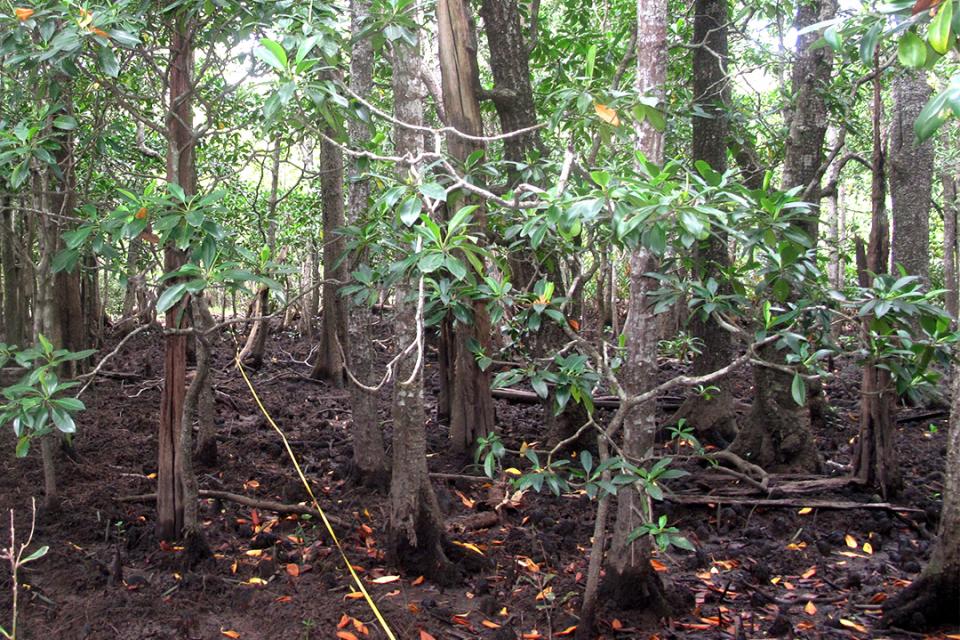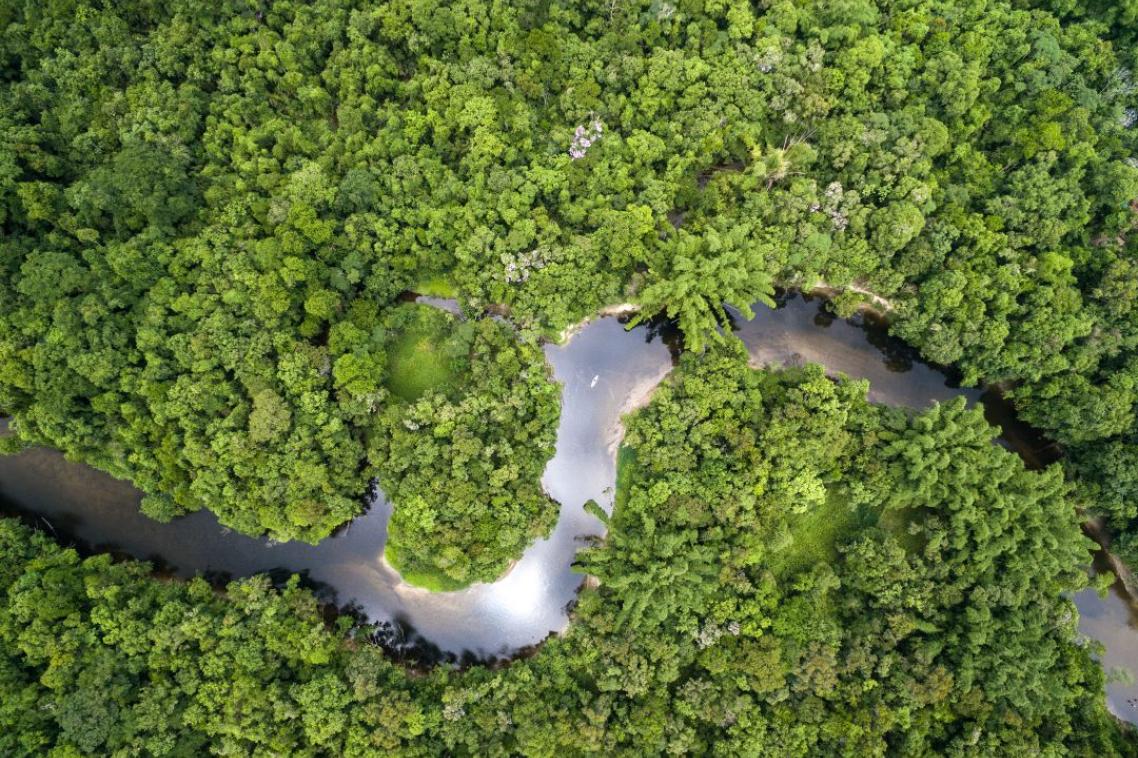Index unlocks a market for nature recovery work

Yandina Creek wetland in Queensland, a coastal area under restoration at The Blue Heart research site.
(Photo credit: Dr Valerie Hagger )
Research has opened the door for coastal wetland restoration projects to potentially earn tradeable biodiversity certificates.
Dr Valerie Hagger from The University of Queensland’s School of the Environment has led a project to develop a multi-diversity index (MDI) specific to coastal wetlands to help support biodiversity certification methods being developed by the Australian Government.
“A scientifically robust way to quantify biodiversity gains from coastal wetland restoration would mean the work of landholders and communities could earn certificates with a market value, helping to attract private finance for projects,” Dr Hagger said.
“So far in Australia there has been a lot of focus on tree planting for carbon credits.
“But with the establishment of a Nature Repair Market under legislation in 2023, there is potential for value to be realised in high-integrity restoration projects if we have a standardised measure of biodiversity gains.
“Ecosystems such as mangroves, salt marshes and supratidal wetlands are hotspots of biodiversity for land and water-dwelling species, but restoration is expensive.
“A method to quantify biodiversity recovery means the emerging nature market can be an incentive to generate money to finance restoration projects.”
The project conducted surveys at 2 coastal wetland restoration sites with very different climates, vegetation and fauna communities – The Blue Heart on Queensland’s Sunshine Coast and Webb Beach on South Australia’s Upper Gulf St Vincent.

A bat acoustic detector overlooking Adelaide International Bird Sanctuary near the Webb Beach coastal wetland restoration project.
(Photo credit: Dr Valerie Hagger)
“The goals of these restoration projects were to reinstate tidal flows to allow natural recovery of mangroves, saltmarshes, and/or supratidal wetlands,” Dr Hagger said.
“At The Blue Heart, we compared the partially restored site to local undisturbed ecosystems and to an adjacent disturbed site before restoration.
“The good news is we confirmed clear biodiversity gains for plants, invertebrates, birds and bats.
“The index we developed called MDI is a way to combine data on multiple indicators of biodiversity to give a single score of health.
“The higher the score, the closer the restored site is to a healthy, natural ecosystem, helping to quantify restoration outcomes in a clear and consistent way.
“The use of MDI could also increase the value of blue carbon projects by enabling biodiversity benefits to be bundled with carbon credits to attract higher carbon prices.”
Dr Hagger will present the research at the 11th World Conference on Ecological Restoration in early October.
The project at UQ’s School of the Environment was supported by the CSIRO-BHP Program Coastal carbon – Australia’s blue forest future and the AXA Research Fund and with help from The Nature Conservancy Australia, Flinders University, The University of the Sunshine Coast, and Sunshine Coast Regional Council.
The research paper has been published in Ecological Indicators.

Mangroves in Coolum Creek Conservation Park which was a reference site near The Blue Heart coastal wetland restoration project for the study.
(Photo credit: Dr Valerie Hagger)
Related articles

Anyone can be a hacker with AI – so what does that mean for the cyber defence industry?

Brazil claims to be an environmental leader. Are they?
Media contact
UQ Communications
communications@uq.edu.au
+61 429 056 139
